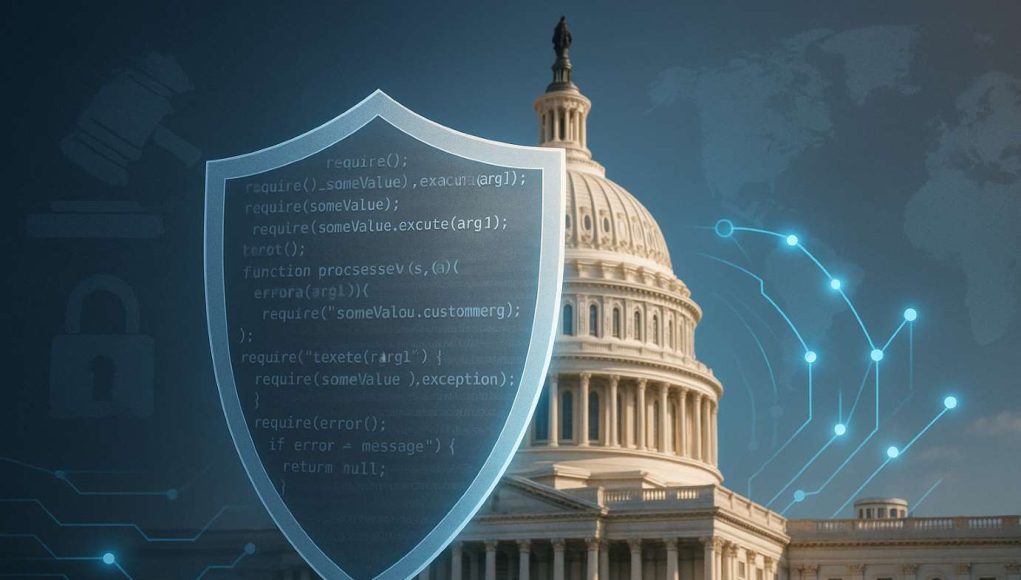A coalition of more than 100 crypto firms, including Uniswap, a16z, Coinbase, and the DeFi Education Fund, has issued a stark warning to the U.S. Senate. They argue that without clear DeFi developer protections, America risks losing its leadership in blockchain innovation. The demand comes as lawmakers debate a sweeping Senate crypto bill. Industry leaders insist that unless safeguards are written into law, developers will either stop building or move their work overseas.
Why Developer Protections Are on the Line
The urgency stems from the recent Tornado Cash conviction of Roman Storm. A federal jury found him guilty of operating an unlicensed money-transmitting business, though he was acquitted of sanctions violations. The case has alarmed the crypto community. It set a precedent suggesting that open-source coders can be held liable for how their software is misused. If that interpretation holds, no DeFi developers in the United States are safe.
For the industry, blockchain developer protections are more than a request. They are essential to ensure that writing code is not criminalized.
>>> Read more: Tornado Cash Trial: What Roman Storm’s Case Means for Crypto
Crypto Industry Coalition Pushes Back
The crypto industry coalition that signed the letter to Senate leadership represents some of the sector’s most influential players. Their message is unified: the market structure bill must include explicit safeguards for open-source work.
Industry advocates point to the Clarity Act, introduced earlier in the House, as a blueprint for reform. The bill would ensure that open-source developers’ liability is limited when their code is used by bad actors. According to the coalition, these measures are critical if the U.S. is to maintain its role as a hub for crypto innovation.
Senate Crypto Bill Faces Resistance
Despite the pressure campaign, resistance in the Senate remains strong. Key lawmakers, including Sen. Mark Warner, argue that broad exemptions would weaken anti-money laundering enforcement. Warner has also warned that exemptions could create new national security risks. He has emphasized that DeFi platforms must face the same crypto regulation obligations as traditional financial institutions.
This debate captures the political tension at the heart of the issue. Should the U.S. prioritize developer protections to safeguard blockchain innovation, or tighten oversight to prevent illicit finance?
>>> Read more: House Passes Stablecoin Bill, Sends GENIUS Act to Trump
What’s at Stake for U.S. Blockchain Innovation
For the coalition, the stakes are clear. If Congress fails to act, the U.S. risks pushing crypto lobbying efforts, talent, and capital to Europe or Asia. Both regions are already building more permissive frameworks.
Some firms warn that without DeFi developer protections, America will not just lose coders. It could also lose startups, venture funding, and entire networks of US crypto innovation.
Conclusion – A Red Line for the Industry
As negotiations over the Senate crypto bill continue, the industry’s position has hardened. Developer protections are being drawn as a red line. More than 100 firms have pledged to fight for them until the final draft.
Whether Congress listens will determine if the U.S. remains at the forefront of decentralized finance or if the next wave of DeFi developers chooses to build elsewhere.
Readers’ frequently asked questions
What would “developer protections” actually cover, and what would they not cover?
They are intended to clarify that writing and publishing open-source code (or maintaining non-custodial, permissionless protocols without control over user funds) does not, by itself, make a developer a money transmitter or financial intermediary. They would not shield anyone who takes custody of user assets, sets transaction terms, or operates a centralized service with control over funds or users.
Would these protections exempt DeFi front-ends, validators, sequencers, or relayers from AML/KYC rules?
No. If an entity operates a service that exerts meaningful control, such as custody, fee setting, user onboarding, order-flow/MEV decisions, or compliance gating, existing AML/KYC and other financial services obligations can still apply. The requested carve-outs target code authorship, not the ongoing operation of financial services.
Does anything change for developers today, and how can teams reduce risk while Congress debates?
Nothing changes until legislation passes; current enforcement and case law still apply. To reduce risk, meanwhile, avoid custody and direct control over user funds, keep protocol operations as non-custodial as possible, separate code publication from any financial operations, document governance processes, and obtain specialized legal counsel before launching interfaces or revenue-sharing mechanisms. If you run a front-end or operations entity, assume applicable compliance duties remain in force.
What Is In It For You? Action items you might want to consider
Make sure you can still reach your crypto if an app changes
Keep accounts on two well-known, licensed exchanges you trust and complete KYC on both, so you always have a fallback. Back up your wallet’s recovery phrase on paper and store it offline (no screenshots). Do a small test withdrawal now to practice the steps before any news-driven rush.
Set basic alerts so headlines don’t blindside you
Create simple news or price alerts for terms like developer protections, Senate crypto bill, Tornado Cash, and Mark Warner. Follow a few reliable sources—your exchange’s status page and one major crypto news site are enough. When alerts hit, re-check your positions and consider dialing down leverage if volatility jumps.
Use safer day-to-day habits
Prefer established apps and exchanges until there’s more clarity. Turn on app-based 2FA, keep devices updated, and avoid links from DMs or pop-ups. Before using any app, ask yourself: Do I hold a recovery phrase? If not, it’s probably custodial—understand the trade-offs.











[…] >>> Read more: Crypto Coalition Presses Senate for DeFi Developer Protections […]